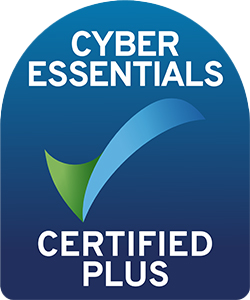Job hunting can feel like a full-time job in itself. With so many adverts popping up online every day, it can be tough to know what’s genuine and what might be a scam. In the UK, scammers are getting smarter, often using job boards and fake company websites to target hopeful applicants. It’s more important than ever to know how to spot these job scams.
This guide clearly breaks down how to spot job scams so you can confidently apply for roles and avoid any shady looking offers. From fake recruiter emails to dodgy LinkedIn messages, we’ll look at how to stay one step ahead of the fake job ads.
How to Spot Job Scams:
Too Good to Be True Offers
A job advert that promises high pay for very little work should always raise questions. These types of adverts are common on social media, WhatsApp and sometimes even on bigger job boards. If you see a role with a starting salary that seems unusually high for the industry or no qualifications required for a senior role, take a step back. If it sounds too good to be true, it often is.
Vague Job Titles and Descriptions
In many scams, the job title is vague and there’s no clear description of the responsibilities. You might be told you can work from anywhere and start right away. These tactics are designed to stop you from thinking things through. Scammers often make it seem like you’ll miss out if you don’t act fast.
Contact Info is Unprofessional or Unavailable
Another red flag is when the company doesn’t seem to exist, or the contact email is personal rather than professional. Reputable firms don’t use Gmail or Yahoo addresses to hire staff. If you can’t find the company on Companies House, that’s another sign to steer clear. Always search the company’s name with the word “scam” next to it. That can often reveal warnings from other jobseekers.
Requests for Personal or Financial Details Straight Away
Once you’ve shown interest in a fake job, scammers often push for sensitive information. This can happen very quickly. Some will ask for your address and date of birth straight away, claiming it’s needed for a background check. Others might go a step further and request your National Insurance number, bank account or even copies of your passport. That’s a massive red flag, as this type of personal information isn’t needed until an employer is ready to offer you a job after going through the usual interview process.
Requests For Money
An easy way to spot a job scam is if they ask for money to process your application or to pay for training upfront. You may be told that it’s refundable or that it’s needed for equipment you’ll use while working remotely. Reputable employers never charge people to apply for jobs. That includes background checks or training fees. If you’re asked to pay anything before starting work, it’s time to walk away.
No Interview or Very Poor Process
Scammers often avoid any real interaction. They might send a message saying you’ve already got the job, even if you haven’t had a call or interview. That should immediately put you on alert. A real employer will want to learn about your background and experience. They’ll want to ask you questions and make sure you’re right for the role.
In some cases, they’ll send messages with interview questions and ask you to reply by email or WhatsApp. That’s not how genuine recruitment works.
Strange Communication and Bad Grammar
Scam job adverts and follow-up messages often contain grammar mistakes or strange formatting. You might notice odd capital letters, missing punctuation or sentences that don’t make sense. These errors are sometimes small but can be a clear sign that the job isn’t real.
Unusual Methods of Communication
Scammers also use unusual ways to reach out. You might get a WhatsApp message from a number you don’t recognise. Some use Telegram, Facebook or other platforms that real employers would never use for first contact. Always check the sender’s email address or profile link. Look for signs it’s not linked to an official company domain.
No Traceable Online Presence
Before applying for any job, it’s worth spending a few minutes looking into the company. If you can’t find a website or their LinkedIn page is empty, that’s not a good sign. Even small UK businesses will usually have some kind of online profile. If you search their name and nothing comes up, be careful.
Sometimes scammers use fake job listings that appear to come from real companies. They might even link to a real company’s site but use a different contact method. This is why it’s important to only apply through official websites or trusted job platforms. Never apply through links sent to you on messaging apps unless you’ve confirmed they are genuine.
Staying Safe During Your Job Search
Job scams are getting more advanced every year. Scammers are using AI, fake websites and cloned company pages to trick people. If you ever feel unsure about an advert or email, take a step back and double-check everything.
There are some easy ways to stay safe:
- Always apply through official company websites or trusted job boards/recruitment agencies.
- You can always reach out to the company directly to confirm whether the job is real.
- Avoid giving any private details unless you’re 100% sure who you’re dealing with.
- If a company skips the usual recruitment steps, take the time to research who you’re dealing with.
- Check the recruiter’s LinkedIn profile. See if the person works at the company they claim to be representing. Look for signs like a newly created account or few connections. That can be a sign it’s fake.
- Never click on suspicious links or download attachments from unknown contacts.
- Use strong passwords on your email and LinkedIn accounts.
- Don’t overshare personal information online.
Talk to someone if you’re not sure about a role. A second opinion from a friend or family member can help spot red flags you may have missed. Learning how to spot job scams gives you an advantage in the job market. You’ll avoid wasting time and protect your personal details.
Avoid Job Scams and Work With Us at The Electronics Group Recruitment
Scam job ads are everywhere, and even experienced professionals can fall for them. By looking out for the signs and taking a bit of extra time before applying, you can keep your job search safe. Always trust your gut, double-check everything and don’t let anyone rush you.
If you’re looking for genuine opportunities in electronics, engineering or manufacturing, consider working with us at The Electronics Group Recruitment. Our team only shares verified jobs from trusted companies, and we’re here to support you every step of the way.
Remember, learning how to spot job scams isn’t just about avoiding fraud. It’s about making smarter decisions that lead you to real opportunities that suit your skills and goals. Get in touch with our team today to discuss how we can support you in your job search.


